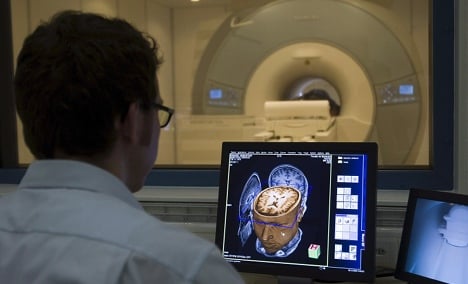In the study, which appears this month in the Archive of General Psychiatry, the scientists showed pictures of naked people of different ages to a group of diagnosed paedophiles and a normal control group. The researchers then scanned the subjects’ brains using functional magnetic resonance imaging (fMRI).
The differences in brain activity could pinpoint who was a paedophile and who was not at a rate of roughly 90 percent, according to the study.
The research, which involved professors from universities in Kiel, Berlin and Denmark, may have ground-breaking uses in the treatment of sex offenders, said Jorge Ponseti, one of the study’s authors at the Christian Albrechts University of Kiel.
It is important to verify whether a first-time sex offender is truly a paedophile – in other words having an inherent attraction to prepubescent children – or merely committed a crime of opportunity, because treatment strategies are different for both groups Ponseti said.
“You can offer a paedophile drugs to lower sex drive or teach him in psychotherapy to avoid situations involving children, but you waste your time if you explain how to have a relationship with adult women,” Ponseti said. “You can approach someone who is not a true paedophile differently. It is important to know what kind of sex offender this is.”
Current techniques to determine whether someone is a paedophile, such as by using a device attached to the penis to measure arousal levels, are notoriously imprecise and not widely used in Germany. Some paedophiles are able to fool such devices by controlling their arousal levels.
Ponseti said he thinks the fMRI technique will be much more precise, although researchers are currently developing another study to see whether its possible for paedophiles to somehow fool it.
“Brain response to an emotional stimulus is very fast and it happens most likely before conscious acknowledgement of a picture takes place, so I think it is unlikely that faking will be successful,” Ponseti said.
Moises Mendoza



 Please whitelist us to continue reading.
Please whitelist us to continue reading.
Member comments